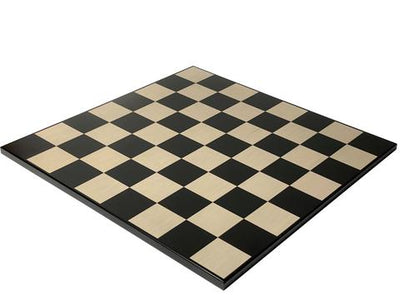Does Chess Raise Your IQ?
It takes brains and brawn (of the mind) to engage in a battle of chess, but have you ever wondered if it can effect your IQ level?
Playing chess can increase cognitive abilities, but it does not necessarily raise IQ. IQ is a standardised measure of intelligence and can encompass a variety of abilities, not just those related to chess. However, playing chess has been shown to improve problem-solving skills, critical thinking, pattern recognition, and decision-making abilities, which are important components of overall cognitive function.
It is difficult to determine a specific increase in IQ from playing chess. IQ tests measure a variety of abilities and are designed to have a standard deviation of 15 points. While playing chess can certainly improve cognitive skills such as pattern recognition and problem-solving, it is unlikely to result in a significant increase in overall IQ score. Additionally, there is debate over the exact definition of intelligence and whether IQ tests accurately measure it, so the relationship between chess and IQ is not clear-cut. However, a study by Dr. Yee Wang Fung in 1977-79, Hong Kong determined that chess players showed a huge 15% improvement in Math and Science test scores. The legend Gary Kasparov, a renowned chess player had an IQ between 185 and 190.
So, what improves your IQ?
Engage mentally in stimulating activities, such as puzzles, board games, or even reading.
Exercise regularly - physical activity has been shown to improve brain function
Learn a new skill or take up a new hobby to challenge your brain and keep it active- we all love a bit of Sudoku
Get those z's in... , sleep is very important for memory consolidation and overall brain health.
Maintain a healthy and balanced diet, proper nutrition plays a major role in brain health.
Challenge yourself to think in new ways, such as through creative problem-solving or taking on new perspectives.
Meditate or practice mindfulness, as these practices have been shown to improve focus, attention, and cognitive function.
Keep in mind that IQ is not the only measure of intelligence and that there are many different types of intelligence. By engaging in activities that boost cognitive abilities and promoting overall brain health, you can potentially improve your overall cognitive functioning.
Playing chess can increase cognitive abilities, but it does not necessarily raise IQ. IQ is a standardised measure of intelligence and can encompass a variety of abilities, not just those related to chess. However, playing chess has been shown to improve problem-solving skills, critical thinking, pattern recognition, and decision-making abilities, which are important components of overall cognitive function.
It is difficult to determine a specific increase in IQ from playing chess. IQ tests measure a variety of abilities and are designed to have a standard deviation of 15 points. While playing chess can certainly improve cognitive skills such as pattern recognition and problem-solving, it is unlikely to result in a significant increase in overall IQ score. Additionally, there is debate over the exact definition of intelligence and whether IQ tests accurately measure it, so the relationship between chess and IQ is not clear-cut. However, a study by Dr. Yee Wang Fung in 1977-79, Hong Kong determined that chess players showed a huge 15% improvement in Math and Science test scores. The legend Gary Kasparov, a renowned chess player had an IQ between 185 and 190.
So, what improves your IQ?
Engage mentally in stimulating activities, such as puzzles, board games, or even reading.
Exercise regularly - physical activity has been shown to improve brain function
Learn a new skill or take up a new hobby to challenge your brain and keep it active- we all love a bit of Sudoku
Get those z's in... , sleep is very important for memory consolidation and overall brain health.
Maintain a healthy and balanced diet, proper nutrition plays a major role in brain health.
Challenge yourself to think in new ways, such as through creative problem-solving or taking on new perspectives.
Meditate or practice mindfulness, as these practices have been shown to improve focus, attention, and cognitive function.
Keep in mind that IQ is not the only measure of intelligence and that there are many different types of intelligence. By engaging in activities that boost cognitive abilities and promoting overall brain health, you can potentially improve your overall cognitive functioning.









